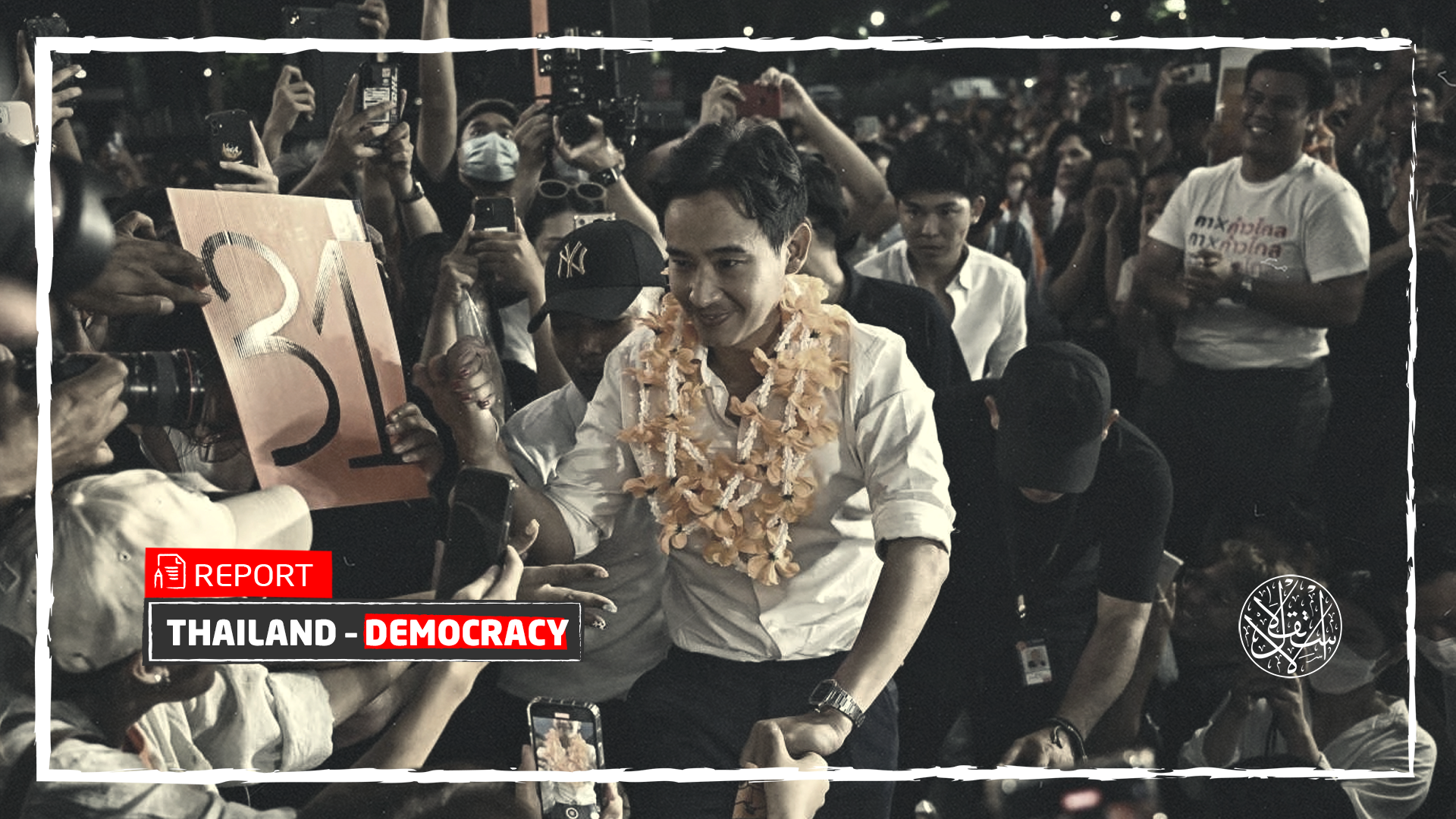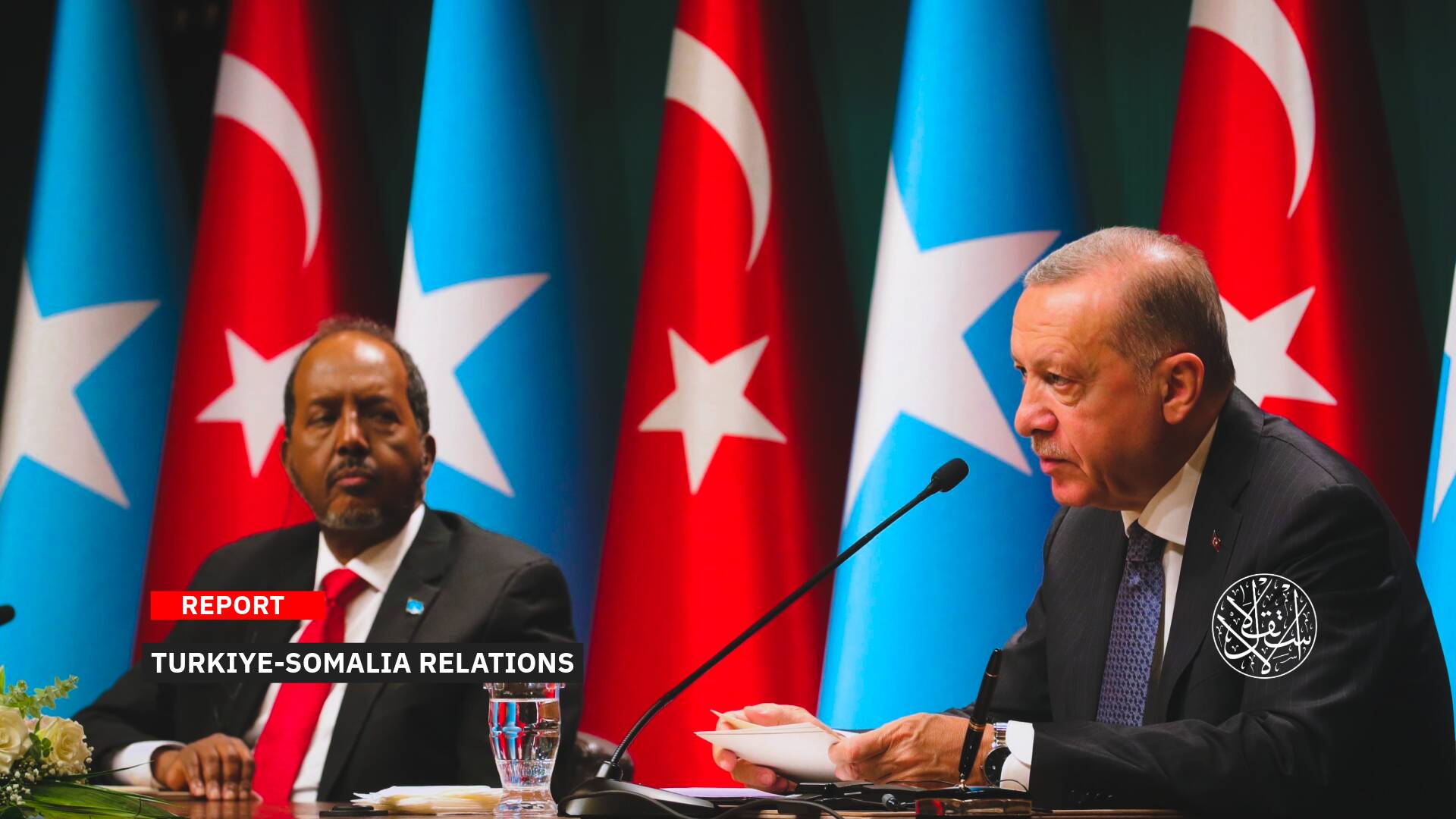The Thai Experience: How it Transitioned from Military Coups to the Spring of Democracy

On the eve of the Thai legislative elections, Pita Limjaroenrat, the leader of the Move Forward Party, said he is ready to become the next Prime Minister of the country. This declaration came to fruition on May 15, 2023, as his party emerged victorious in the elections, paving the way for a new era in Thailand after years of military coups and authoritarian rule.
Limjaroenrat, 42, said at a press conference last week in Bangkok: “It was the right time, people suffered too much…Today is a new day, and I hope it brings sunshine and hope.”
The Thai people themselves participated in the elections, calling for radical reforms and the reduction of military influence and authoritarian power.
Throughout its history, Thailand, located in Southeast Asia, has experienced numerous military coups.
Since 1932, it has witnessed 18 military coups or attempted coups under a system of governance divided between constitutional monarchy and the army, which remains the most influential institution in the country.
Therefore, the recent elections dealt a solid blow to the autocratic rule supported by the military and monarchy. However, the path to these elections was not easy and was filled with difficulties and challenges.
The coalition that emerged victorious in the recent elections includes the Move Forward Party (152 seats out of 500) and the Pheu Thai Party (141 seats), which is affiliated with the former prime minister residing in exile, Thaksin Shinawatra, who announced his alliance the day after the elections.
However, obtaining a parliamentary majority in Thailand may not be sufficient to form a government due to the participation of 250 members of the Senate appointed by the military in the vote to select the anticipated Prime Minister this summer.
The 2014 Coup
To understand the path taken by the Move Forward Party to win the elections, the crisis point that occurred years ago must be revised specifically on May 22, 2014, when the military coup led by General Prayut Chan-o-cha, the commander-in-chief of the Royal Thai Armed Forces, took place.
At that time, Thailand was under a transitional government led by Prime Minister Yinglak Chinnawat, but the military intervened and overthrew her.
The Constitutional Court intervened to support General Prayut Chan-o-cha’s coup by annulling the results of the elections held in February 2014 and removing Yinglak from her position.
The military imposed martial law, shut down media outlets, enforced curfews, and detained opposition politicians. They also imposed travel bans on many politicians and members of the overthrown government.
As widespread protests erupted against the military coup in Bangkok and various parts of Thailand, coup leader Prayut Chan-o-cha delivered an angry speech to the crowds, saying: “Do not criticize, and do not cause trouble as there is no benefit in that.”
He warned them, saying: “If you want that, we will be forced to use force and enforce the law strictly.”
In his address to the media, he stated: “Control your message, and if anyone disseminates an inciting message, I will consider it against peace in the country.”

The Military Grip
Immediately after the coup, the army, with the support of the then King Bhumibol Adulyadej, formed the National Council for Peace and Order (NCPO), led by coup leader General Prayut Chan-o-cha.
The council ruled the country with a strict, repressive system. It imposed control over broadcasting in Thailand, as well as over the press and media freedoms. The constitution was abolished, and members of the previous Thai government were arrested.
Subsequently, the council proceeded to enact a new strategy for governing the country. In the same year (2014), they drafted a new constitution that stipulated the formation of the government through Parliament.
The Parliament consists of two chambers: The first is the Senate chamber, with 250 members appointed by a committee dominated by military leaders and the National Council.
The other chamber is the House of Representatives, elected from 500 members. This system aims to determine the form and functions of any appointed government, as it requires the approval of the majority in both chambers or obtaining two-thirds of the House of Representatives (376 seats).
During that period, the military regime expanded the use of the lese-majeste law, condemning anyone who criticized the government or state institutions. Many opposition figures were imprisoned under this law.

The People’s Struggle
Despite the severity of the military’s measures and the tight security grip, the opposition began to gather its forces. In 2018, the opposition party, Future Forward Party, was formed, advocating for full democracy in Thailand without any concessions.
They also called for the repeal of the lese-majeste law and the amendment of the constitution to facilitate a transition to a republican system.
Soon, the Future Forward Party became the main opposition party in major cities such as Bangkok, Pathum Thani, Songkhla, and Chonburi.
The party expanded its influence by forming an alliance with the main opposition party in rural areas, the Move Forward Party, led by Yinglak Chinnawat, the daughter of former Prime Minister Thaksin Shinawatra, who was overthrown in the 2014 coup.
With the alliance, expansion, and popularity gained by the new party, the National Council decided in 2020 to dissolve the Future Forward Party, sparking a fierce uprising against military rule.
The uprising was mainly led by university students under the umbrella of a widespread student organization called the Free Youth Movement. It spread across Thailand from cities to rural areas.
The uprising lasted for four months, from February 2020 to July 2020. Its demands expanded to include an end to repression, constitutional amendments, and the dissolution of Parliament.
However, the movement subsided due to the COVID-19 pandemic and the suspension of studies. Thailand witnessed a curfew due to the pandemic.
But in the following summer of 2021, the student movement regained strength and directed criticism and attacks toward the monarchy itself, which was previously considered a red line that should not be approached.
Even the opposition Move Forward Party led by Shinawatra, despite its popularity and suffering from military coups and support from pro-monarchy forces, had never directly targeted the monarchy.
As the student protests intensified, military and police crackdowns increased, and the first casualty occurred in November 2021 when a protester was shot by police with live ammunition.
By the end of 2021, the uprising was utterly suppressed through a wide-ranging campaign of arrests targeting most activists and politicians, who were then tried under the lese-majeste law.

‘Move Forward’
The repression of protests and the suppression of the student movement did not deter the determination of the Thai people to move forward toward democracy and a more pluralistic system, surpassing the military regime.
In 2022, the opposition decided to bring back the Future Forward Party with a new name, the Move Forward Party.
The new party embarked on the path of democratic struggle with fundamental principles, one of which was to exclude any alliance with parties related to the 2014 military coup.
The Move Forward Party benefited from a widespread public desire for political change, especially among voters under the age of 26.
This aspect presented a challenge for the fledgling party, given that the youth demographic constitutes a modest voting bloc in Thailand, accounting for a mere 14% of the overall 52 million eligible voters, with the majority of the electorate being older and aging.
However, members of the Move Forward Party made diligent efforts and employed sophisticated advertising strategies to convince older voters to support the party for a better future for their country.
The opposition party participated in the legislative elections on May 15, 2023, carrying the legacy of the people’s struggle against the 2014 coup, backed by the voices of the youth and many disillusioned individuals.
The elections witnessed an unprecedented high-turnout of over 75% due to the slowing economic growth and declining fundamental freedoms.
The Move Forward Party managed to achieve a decisive victory, dealing a major setback to the outgoing government supported by the military and the monarchy.
The party won 151 seats out of a total of 500, while the United Thai People’s Party, led by Prime Minister and coup leader General Prayut Chan-o-cha, fell behind with only 36 seats.
Pita Limjaroenrat, the leader of the Move Forward Party and the upcoming prime minister, announced that the future would completely change for the better and that the previous system would not return.
Many Thai people fear that during political negotiations, the military and its supporters might seek to prevent the winning parties from assuming power.
There are also concerns about the possibility of another judicial ruling declaring the Move Forward Party ineligible for technical reasons, similar to what happened to its predecessor, the Future Forward Party, in 2020.
However, in the end, the Thai journey, which has faced significant challenges to reach this contrasting scene, will remain historic and present in the history of people striving for change and surpassing military coups and authoritarian governments.
Sources
- Thai elections 2023: Voters deal major blow to military-backed rule [Arabic]
- Thailand: The leader of the opposition announces his victory in the legislative elections and his readiness for the position of prime minister [Arabic]
- History of coups in Thailand [Arabic]
- A curfew and a siege on the media after the coup was announced in Thailand [Arabic]
- Thailand.. the country of coups [Arabic]
- Thai military declares coup, detains party leaders










